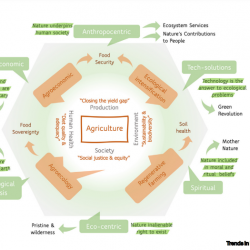
29 February 2024
A newly published study, funded by SHOWCASE and composed by project partners from the Spanish National Research Council and Wageningen University, examines the communication challenges and strategies associated with promoting biodiversity conservation within agricultural contexts, aiming to bridge the gap between scientific evidence and practical implementation...
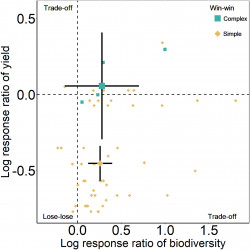
13 February 2024
A SHOWCASE-funded study, led by project partner institutions HUN-REN Centre for Ecological Research, Wageningen University, Agroscope, and Swedish University of Agricultural Sciences, was recently published in the Journal of Environmental Management. The study uses a meta-analysis to observe the simultaneous effects of agri-environment schemes (AES)...

05 February 2024
A newspaper article containing several opinions and observations from SHOWCASE project partner Wageningen University (WU), other universities, and organisations, such as the iDiv Institute in Leipzig and the Insects Knowledge Center, was published in the daily morning newspaper Volkskrant, discussing the new ways in which WU uses remote-controlled drones...
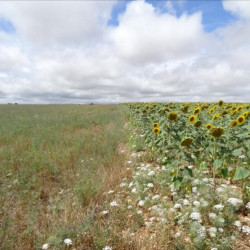
24 January 2024
SHOWCASE partners from Wageningen University, the University of Natural Resources and Life Sciences in Vienna, the Spanish National Research Council, and the French National Centre for Scientific Research published a co-funded study in the scientific journal PNAS, analysing the ecological, agronomic, and economic implications of biodiversity-friendly...
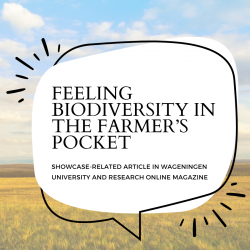
15 January 2024
The online magazine of Wageningen University & Research has published an article mentioning the SHOWCASE project, more specifically how project coordinator Professor David Kleijn has been engaging local farmers in efforts to bolster biodiversity. He believes previous research focused solely on ecological benefits without considering costs for farmers....
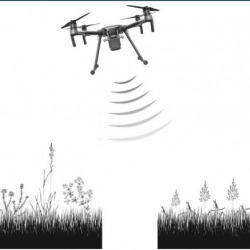
Estimating flower diversity in grasslands to indicate bee abundance: an UAV photogrammetric approach
09 January 2024
In recent decades, agricultural landscapes have witnessed declining plant and insect biodiversity, leading to diminished benefits for crops and humans. This decline, attributed to changes in land use, intensive agriculture, climate change, and habitat loss, affects insect niches and jeopardises insect pollinators' part in sustaining wild plant species,...
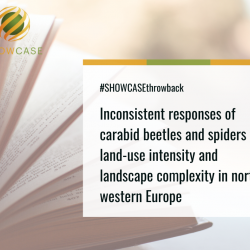
08 January 2024
This SHOWCASE-supported study aims to explore the intricacy between farming and biodiversity. It centres on examining how carabid beetles and spiders respond to the threats posed by chemical use in modern agriculture and the resulting homogenised landscapes on farmland. Up until now, there has been vast research in understanding crop pollinators' responses...
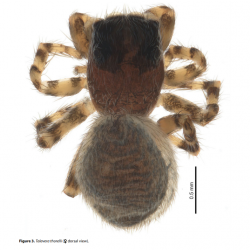
22 December 2023
In a new SHOWCASE paper published in Check List the journal of biodiversity data, 44 previously unrecorded arthropods were found in Estonia, thus shedding light on the species-rich habitats of the coastal areas in Estonia.
SHOWCASE contributed at large to the new knowledge of Estonian biodiversity in the coastal grasslands – an important habitat...
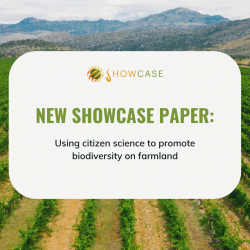
19 December 2023
A SHOWCASE-conducted paper, written by project partners at the Swedish University of Agricultural Sciences, the University of Reading, and the Dutch Butterfly Conservation, and published in Ambio: A Journal of Environment and Society emphasises the connection between monitoring and farmland biodiversity. In particular, the paper examines citizen science...
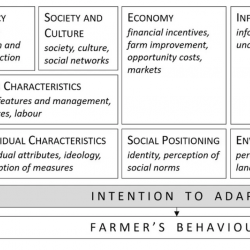
30 November 2023
A new SHOWCASE-supported paper seeks to fill in the knowledge gap on the behavioural determinants shaping European farmers' decisions to implement biodiversity-friendly farming practices. With agricultural intensification and landscape homogenisation identified as major drivers of biodiversity loss in European agricultural landscapes, understanding...
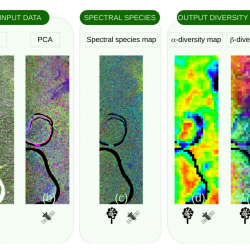
13 July 2023
Biodiversity monitoring based on field data across the entire Earth poses a significant challenge, which has been alleviated with the advent of remote sensing technology, offering new possibilities for Earth observation. Diving deeper into these possibilities, a 2022 paper supported by SHOWCASE reviewed the potential of the spectral species concept...
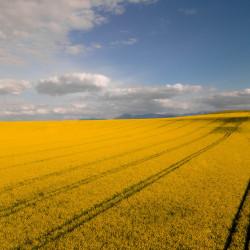
02 June 2023
In a study conducted in Western France, researchers made significant strides in understanding the delicate balance between weed management, crop production, and biodiversity conservation. Weeds are recognised as a major pest in agriculture and as such, have been intensively managed to reduce their competition for resources with crop plants. However,...